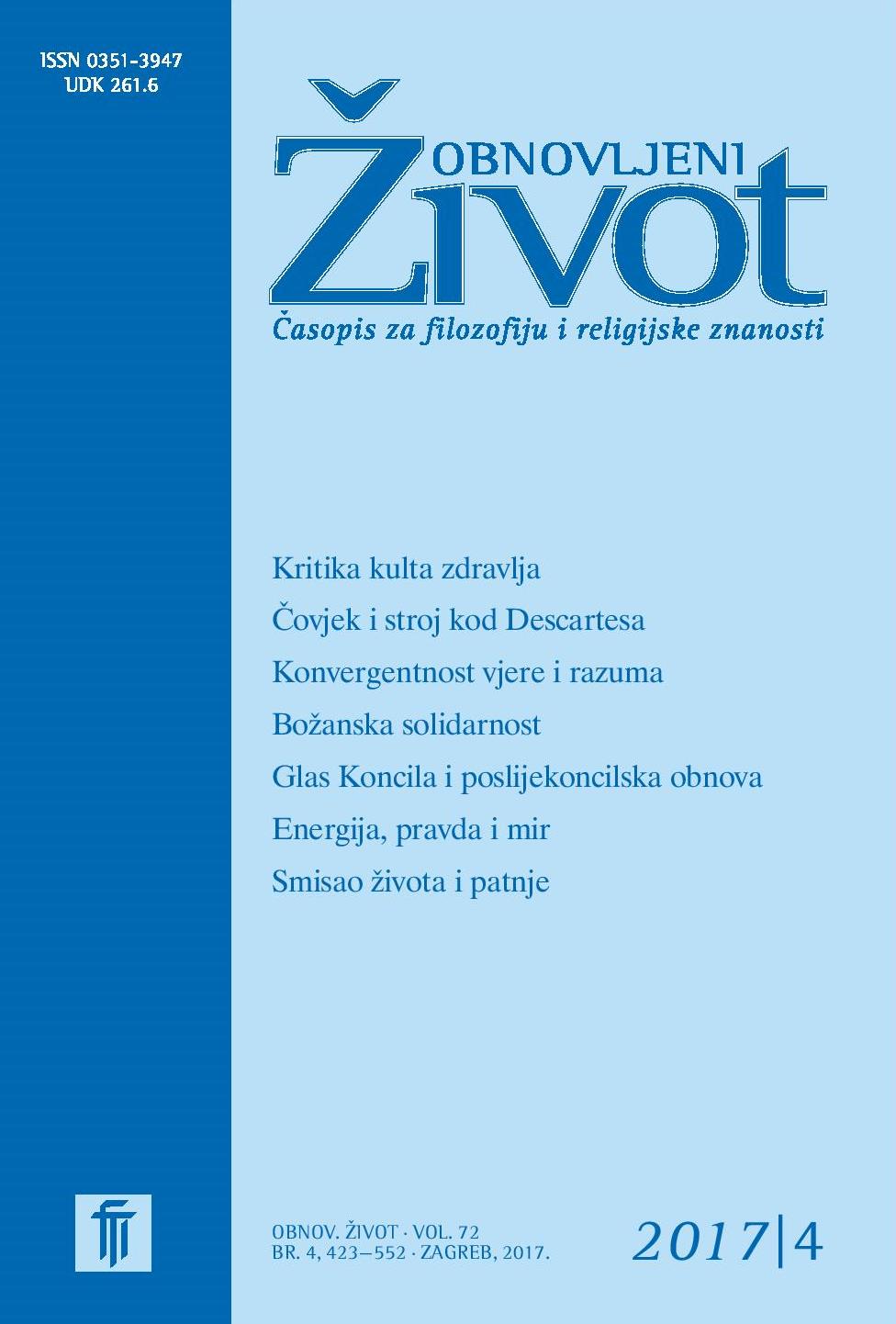A Critique of the Health „Cult“ from the Hermeneutical–Ethical Perspective
Keywords:
“enigma of health”, illness, H. –G. Gadamer, K. Dörner, disease prevention, promotion of healthAbstract
The purpose of this paper is to examine the phenomenon of health from two complementary vantage points: hermeneutics and ethics. The hermeneutic analysis pursues the ideas of Hans–Georg Gadamer, especially as presented in his work, The Enigma of Health, and also of Klaus Dörner, the renowned German social psychiatrist who appropriated Gadamer’s rhetoric on the “enigma of health”, further developing it so as to demonstrate its significance in clinical practice and its implications in preventive health programs. Gadamer and Dörner each in his own way contributed to the demystification of the utopian concept of health. Contrary to the tendency to absolutise
health, which reduces its value, both authors argue for the “enigmatic nature” of health and raise awareness of the fact that being healthy is not “makeable”, but rather involves the capacity for “self–effacing surrender” in regard to various tasks in life. It eludes one to the extent to which one distances oneself excessively from investing an effort on behalf of and in caring for others. Both authors demonstrate that the meaning of health should be seen in the broader context of the issue of the whole living world. The phenomenological and hermeneutical methods prove to be particularly appropriate for this analysis and the illumination of those aspects of health which are not possible when health is seen exclusively from the perspective of the natural sciences. Both authors indicate that health evades us, even develops into its opposite, when upheld as the highest of social values and when equated with happiness in the sense of fulfillment in life. A discussion on health and illness is at the same time a discussion on self–understanding and the meaning of being human.
Downloads
Published
Issue
Section
License
Jednom prihvaćeni članak obvezuje autora da ga ne smije objaviti drugdje bez dozvole uredništva, a i tada samo uz bilješku da je objavljen prvi put u Obnovljenom životu. Uredništvo će obavijestiti autora o prihvaćanju ili neprihvaćanju članka za objavljivanje.
Članci objavljeni u časopisu se, uz prikladno navođenje izvora, smiju besplatno koristiti u obrazovne i druge nekomercijalne svrhe.


